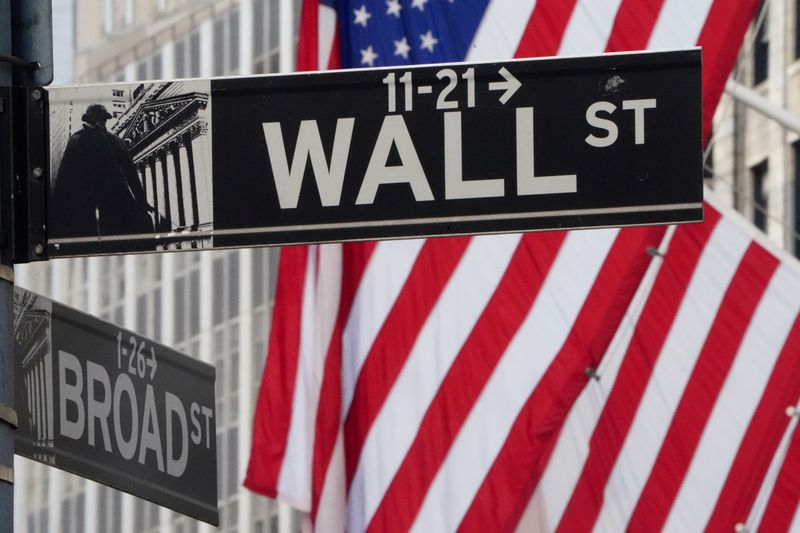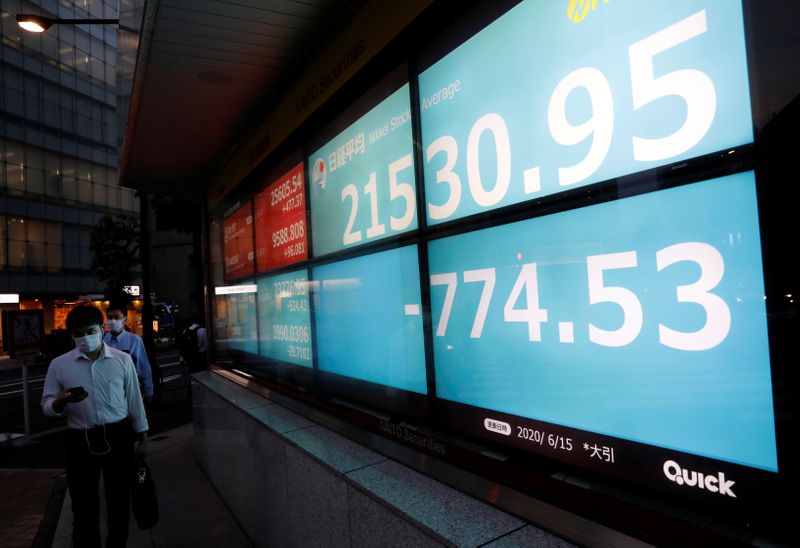By Herbert Lash
NEW YORK (Reuters) - A gauge of global equity markets raced toward a record high on Monday in a rally that lifted the S&P 500 and Nasdaq to all-time peaks and buoyed the dollar as hopes for coronavirus treatments bolstered risk appetite.
U.S. regulators on Sunday authorized the use of blood plasma from recovered COVID-19 patients as a treatment option. Shares of AstraZeneca rose on a Financial Times report that the U.S. government was considering fast-tracking its experimental vaccine.
The U.S. Food and Drug Administration's move to give emergency authorization for the use of anti-body rich plasma was hailed by President Donald Trump. It came a day after he accused the FDA of impeding the roll-out of treatments until after the Nov. 3 presidential election.
The World Health Organization was cautious about endorsing the use of the plasma to treat those who are ill, saying evidence that it works remains "low quality."
The announcement came on the eve of the Republican National Convention. Trump on Monday received enough votes to formally win the nomination as the Republican candidate for the presidency for another four years.
Progress in treatments or an effective vaccine to gain control of the virus would aid Trump's re-election chances.
Craig Erlam, senior market analyst at OANDA in London, said that while it was a highly political move on Trump's part, "everyone wants to be the first to market, everyone wants to get the economy back on track and slow down the death rate."
"When you add it all up, it's positive COVID news for the market," he said.
Equity markets worldwide rose on the vaccine hopes. Europe's broad FTSEurofirst 300 index (FTEU3) closed up 1.62% at 1,439.54, while MSCI's all-country world index (MIWD00000PUS) rose 1.06% to 577.02 after overnight gains in Asia.
The benchmark for global equity markets is less than 1% from scaling its all-time peak reached in February.
AstraZeneca (L:AZN) rose 2.1%, providing the FTSE 100 (FTSE) index in London its biggest boost.
Shares of Apple Inc (O:AAPL) rose 1.3% to cross $500 for the first time, while Chinese retailer Alibaba 's U.S.-listed shares (N:BABA) climbed 3.8%, to a record high. Shares of electric carmaker (O:TSLA) also set a new high before retreating 1.8%.
On Wall Street, the Dow Jones Industrial Average (DJI) rose 1.35%, the S&P 500 (SPX) gained 1.00%, and the Nasdaq Composite (IXIC) added 0.6%.
The dollar edged higher, holding above two-year lows against the euro, as its sell-off against the single currency paused after the U.S. currency got a boost on Friday. Data showed a recovery in U.S. business conditions, while European data showed slowing improvement.
Federal Reserve Chairman Jerome Powell this week will give a highly anticipated speech about the U.S. central bank's policy framework review at the Fed's annual Jackson Hole symposium.
The speech will be watched for clues about interest rates and will likely be the next major dollar driver, with investors watching to see if Powell signals that the Fed will shift its inflation target to an average.
The 10-year U.S. Treasury (US10YT=RR) note rose 1.4 basis points to 0.6542%.
The dollar index (=USD) rose 0.113%, with the euro (EUR=) down 0.05% to $1.1789.
The Japanese yen
Oil prices strengthened as storms threatening the Gulf of Mexico shut more than half of the U.S. region's oil production and on expectations of progress in the development of a COVID-19 treatment.
Brent crude futures (LCOc1) settled up 78 cents at $45.13 a barrel. U.S. crude futures (CLc1) rose 28 cents to settle at $42.62 a barrel.

Gold prices fell as optimism over the FDA's authorization of a COVID-19 treatment lifted Wall Street stocks to record highs. U.S. gold futures
